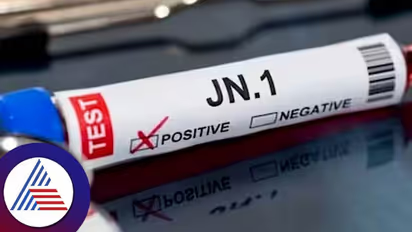JN.1 variant tally hits 69 cases in India by December 25: Report

Synopsis
The World Health Organization (WHO) has urged South-East Asian nations to bolster surveillance efforts, emphasizing the importance of monitoring respiratory diseases, including the new sub-variant JN.1 and influenza.
As the year draws to a close, concerns about COVID-19 continue to persist. Recent reports indicate an uptick in cases of the JN.1 sub-variant, totaling 69 infections, prompting vigilance among health officials. The majority of these cases involve patients in home isolation, with hospitalization rates remaining relatively stable, as per official sources.
However, the emergence of the JN.1 variant has sparked concerns of a potential resurgence in COVID-19 cases, leading global health bodies to issue urgent recommendations.
The World Health Organization (WHO) has urged South-East Asian nations to bolster surveillance efforts, emphasizing the importance of monitoring respiratory diseases, including the new sub-variant JN.1 and influenza. Heightened vigilance and protective measures have been advised to combat this evolving threat.
Expecting a potential surge, the Delhi government is proactively reviewing its medical infrastructure, including oxygen supply, ventilator availability, and other critical necessities. Plans to enhance genome surveillance are underway to swiftly respond to any escalation in COVID-19 cases.
In Karnataka, the state cabinet's sub-committee is scheduled to convene on December 26 to deliberate on recommendations put forth by the Technical Advisory Committee. This meeting aims to address the current COVID-19 situation and proposed measures to contain the spread.
PM Modi celebrates Veer Bal Diwas, honors Sikh martyrs at Bharat Mandapam (WATCH)
Recent figures released on Monday indicate 125 new COVID-19 cases and three additional deaths in Karnataka within a 24-hour period. With active cases totaling 436, authorities remain vigilant amid concerns about the pandemic's trajectory in the state.
Stay updated with the Breaking News Today and Latest News from across India and around the world. Get real-time updates, in-depth analysis, and comprehensive coverage of India News, World News, Indian Defence News, Kerala News, and Karnataka News. From politics to current affairs, follow every major story as it unfolds. Get real-time updates from IMD on major cities weather forecasts, including Rain alerts, Cyclone warnings, and temperature trends. Download the Asianet News Official App from the Android Play Store and iPhone App Store for accurate and timely news updates anytime, anywhere.